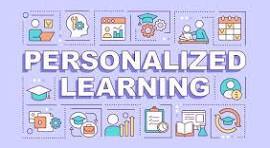In recent years, artificial intelligence (AI) has made significant strides in various fields, and education is no exception .Personalized Education As classrooms become increasingly diverse and the demand for personalized learning grows, AI tutors are emerging as a promising solution to meet the unique needs of each student. This blog explores the potential of AI tutors in revolutionizing education and how they can enhance personalized learning experiences.
The Need for Personalized Education
Education is not a one-size-fits-all endeavor. Every student has different learning styles, paces, and preferences. Traditional teaching methods often struggle to accommodate these differences, leading to gaps in understanding and engagement. Personalized education aims to tailor learning experiences to individual needs, ensuring that every student can thrive.
The Role of AI in Education
AI technology has the potential to transform the educational landscape by providing personalized support and resources. AI tutors can analyze a student’s strengths, weaknesses, and learning habits, offering customized feedback and guidance. Here are some key ways AI tutors are changing the approach to education:
1. Adaptive Learning
AI tutors utilize adaptive learning algorithms to assess a student’s performance in real-time. By analyzing data from quizzes, assignments, and interactions, these systems can adjust the difficulty level of tasks and provide targeted resources. This ensures that students are challenged appropriately, promoting mastery of concepts without overwhelming them.
2. 24/7 Availability
One of the most significant advantages of AI tutors is their availability. Unlike traditional educators, AI tutors can provide support around the clock. This flexibility allows students to seek help whenever they need it, whether it’s late at night or during weekends. This on-demand assistance can be particularly beneficial for students who may feel hesitant to ask questions in a classroom setting.
3. Immediate Feedback
AI tutors can offer instant feedback on assignments and assessments, helping students identify areas for improvement right away. This immediate response fosters a growth mindset, encouraging students to learn from their mistakes and make necessary adjustments. In contrast, traditional feedback methods can often lead to delays, hindering the learning process.
4. Data-Driven Insights
AI tutors collect and analyze vast amounts of data on student performance. Educators can leverage these insights to identify trends, monitor progress, and tailor their teaching strategies accordingly. This data-driven approach enables teachers to focus their efforts on areas where students may be struggling, ultimately enhancing overall learning outcomes.
Challenges and Considerations
While the potential of AI tutors is promising, there are challenges and considerations to keep in mind:
1. Equity and Access
Not all students have equal access to technology, which can create disparities in educational opportunities. Ensuring that AI tutors are accessible to all students, regardless of their socioeconomic background, is crucial for promoting equity in education.
2. Human Connection
Education is not solely about academic achievement; it also involves social and emotional development. While AI tutors can provide valuable support, they cannot replace the human connection that teachers offer. Striking a balance between AI assistance and human interaction is essential for a holistic educational experience.
3. Data Privacy
The use of AI in education raises concerns about data privacy and security. Protecting student information and ensuring ethical use of data is paramount as schools and educators integrate AI technologies into their practices.
The Future of AI Tutors in Education
As technology continues to advance, the role of AI tutors in education is likely to expand. We may see more sophisticated AI systems that can understand and respond to emotional cues, further enhancing the personalized learning experience. Additionally, as educators become more familiar with AI tools, they can integrate them into their teaching practices in innovative ways.
Conclusion
AI tutors represent a significant step forward in the quest for personalized education. By leveraging adaptive learning, providing immediate feedback, and offering 24/7 support, these intelligent systems have the potential to transform the way students learn. However, it is essential to address the challenges associated with equity, human connection, and data privacy to ensure that AI tutors serve as a valuable complement to traditional education.
As we embrace the future of learning, AI tutors may very well become an integral part of the educational landscape, helping to create a more personalized, engaging, and effective learning experience for all students.
What are your thoughts on the role of AI tutors in education? Have you had any experiences with AI in your learning journey? Share your insights in the comments below!
